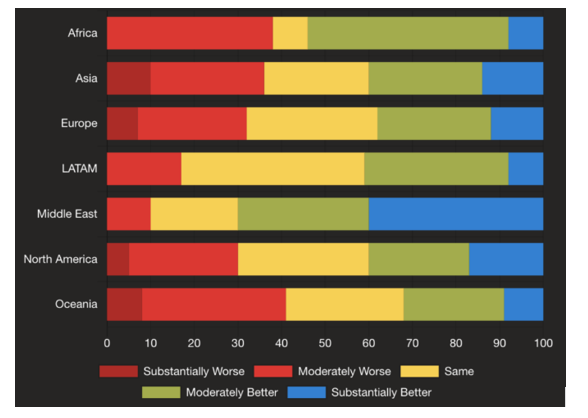COVID-19 has significantly affected every possible industries and perhaps the educational industry has witnessed a huge impact. Not only in India, but education systems across the world have undergone huge changes. Nevertheless, the pandemic has triggered a number of problems but there have been some rays of sunshine amidst the despair. The 21st century advanced teacher training course in Chennai preparing the teachers to endure in the new normal.
Well, the current Deputy Commissioner for Education for the Greater Chennai Corporation (GCC) of Chennai, Ms. Grace Pachuau, stated that “Initially, we never expected the situation to be this grave. When the lockdown was announced, we thought we’d be up and running in a month. Clearly, we were wrong!” As education is being provided via online with the Zoom lessons and Google classrooms, the administration distributed smartphones by recharging data packs in phones. It is apparent that this is a good opportunity to support the internet connectivity across rural India.
Some of the students are quick to adapt to this new normal system and some take little longer time to familiarize with this system, same case goes with the teachers as well.

The representativeness, at the teachers’ end, is stressful in other ways as well with domestic responsibilities and irresolute internet connections. For example, a lot of teachers live in joint families, though most teachers now are teaching online everyday but the time wanted to formulate for lessons is much longer than for offline classes.
We are sure these circumstances will change with the time!
Teaching and Learning Practice 2.0
Well, because of the pandemic, teachers have been shaken up overnight completely and being forced to upgrade their pedagogical as well as communication tools. Moreover, teaching professionals have also tried figuring out different ways of refining the classroom experience online. By using technology successfully, teachers can also open up new prospects. The educationists and teachers generally use different levels of depth of knowledge (DOK) to access and measure the accomplishment of teaching programmes. And, right now the big challenge before institutes and teachers is to figure out a way of conveying higher DOK levels while using online learning components in the age of coronavirus.
The greatest advantage of online system of education is that it can become international and this will create forthcoming entrepreneurs. Post covid-19, there is an opportunity to transform the education system of India. Starting from the curriculum design, collaborations, skill development as well as faculty involvement - all aspects of the 21st century learning should focus on internationalizing the education. Well, in the early days of online teaching, with no para-helpers, professionals of the school had to teach in smaller groups. Thus E-learning is covered under a larger term of technology-based learning through:
- Websites
- Learning portals
- Video conferencing
- YouTube
- Mobile apps
- Google classroom
- Skype
- Zoom
- And thousand types of free available websites for blended learning tools.
Presently, E-learning is increasing learners’ acquaintance, even the academic staff, professional as well as industry people skills through the internet. Technologies have completely changed the customary way of education to the modern way of learning, like artificial intelligence.
Follow Some Basic online/e-learning Strategies
- Understand the basic information about E-learning
- Update or develop lesson plans
- Plan for continuity for learning
- Follow up with students
- Also address to mental health and psychosocial needs
- Create a supportive learning environment.
- It’s vital that you establish a virtual presence at the very beginning of the e-Learning course.
- You need to be engaging and supporting enough.
- Let your learners know what days you will be online.
- Use different kinds of online posts, forums or social media with your learning community.
- Create a supportive online community.
- Encourage the teacher-to-student engagement and student-to-student interaction.
- Create an open forum or discussion board.
- Implement synchronous and asynchronous learning activities.
- Use mobile devices for e-learning
Also, make sure your e-Learning content is simply accessible via smartphones, laptops, and iPads to maximize the reach of your teaching approaches. With these strategies along with the teacher training course in Chennai, you can feel more confident about your online teaching skills plus e-Learning materials.
Written By : Debalina Chakraborty



